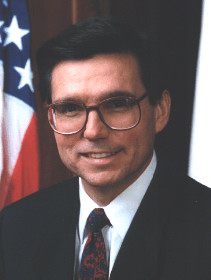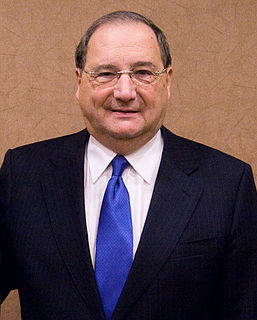A Quote by David Baker
No one bill will cure the problem of spam. It will take a combined effort of legislation, litigation, enforcement, customer education, and technology solutions.
Related Quotes
Will this massive outcry [about pollution] continue long enough to have effective results? Will federal and state laws be enacted with effective enforcement clauses? Will people be concerned long enough to pay the bill through higher prices? Will towns tole lost jobs when it proves too costly to clean obsolete plants?... I think so, but it sure won't be as easy as the present outcry and political oratory suggest. The answers to preserving a livable environment are not all simple, and some of the nuts now pushing simplistic cure-alls won't help bring about any lasting solutions.
It is said if an organization listens to the complaint of a customer and the problem is fixed, the customer remains a loyal customer and tells approximately seven others about the experience. Conversely, if a person is ignored and the problem not fixed, that customer will not deal with that organization anymore and will tell approximately twenty other people about the negative experience.
Often, very talented technical people find it extraordinarily difficult to take the viewpoint of customers, who are often ignorant about the technology and who may have strong and perhaps incorrect prejudices about it. The technical people may believe, deep down, that they know better what customers "should" need. Customers, of course, have a different perspective. They want products that will solve customer problems and provide other customer benefits, and will do so without undue risk or cost. Not infrequently, customers view advanced technology itself as a risk.
Another reform I`m proposing is the passage of legislation named for Detective Michael Davis and Deputy Sheriff Danny Oliver, two law enforcement officers recently killed by a previously deported illegal immigrant. The Davis-Oliver bill will enhance cooperation with state and local authorities to ensure that criminal immigrants and terrorists are swiftly, really swiftly, identified and removed. And they will go fast, believe me. They`re going to go.
In fact, I believe the first companies that make an effort to develop an authentic, transparent, and meaningful social contract with their fans and customers will turn out to be the ones that are the most successful in the future. While brands that refuse to make the effort will lose stature and customer loyalty.








































